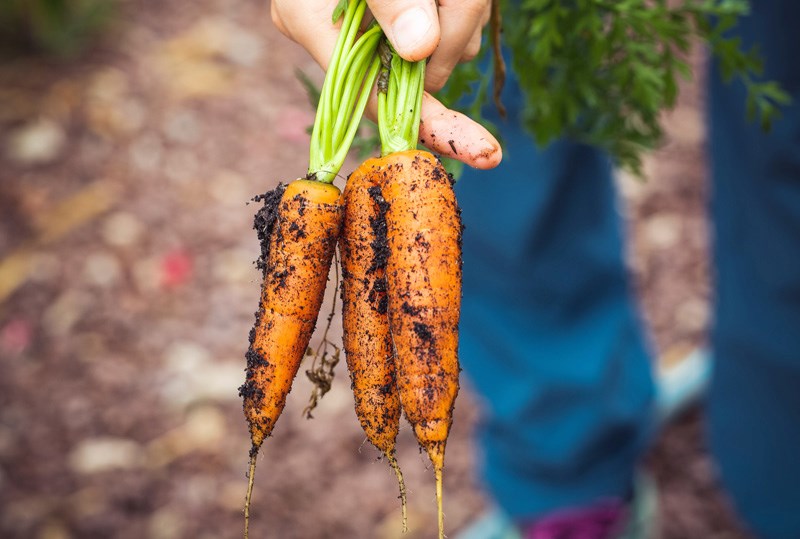Port Moody could be going into the farming business.
At its meeting Tuesday, city council will consider a plan to establish locations for the planting of vegetables and fruit at city hall, Pioneer Park and in front of the Arts Centre. The project has an estimated budget of more than $35,000.
In a report, Port Moody’s general manager of environment and parks, Lesley Douglas, said the program expands on a 2017 initiative that placed 16 container gardens with fruit and vegetable plants in front of city hall. Weekly tours were conducted to promote discussions and sharing of food production best practices.
Douglas said the program was discontinued in 2018 because the fruit and vegetable planters required more maintenance than planters filled with display plants.
In her report, Douglas estimated installation and maintenance costs of $17,790 for 16 planters in front of city hall, $9,970 for construction and maintenance of a raised planter in Pioneer Park, and $8,030 for planting and maintenance of a victory garden in existing plant beds in front of the Arts Centre.
She said the garden program would be supplemented by backyard gardening workshops and a family-oriented education program on edible gardening.
“Although traditional horticulture knowledge lends itself well to plant growth, urban food production requires detailed knowledge of parameters such as soil conditions, sun exposure, plant and seed selection, drainage, irrigation, disease and bear-awareness,” Douglas said, adding the program will contribute to residents’ understanding of local food security.



